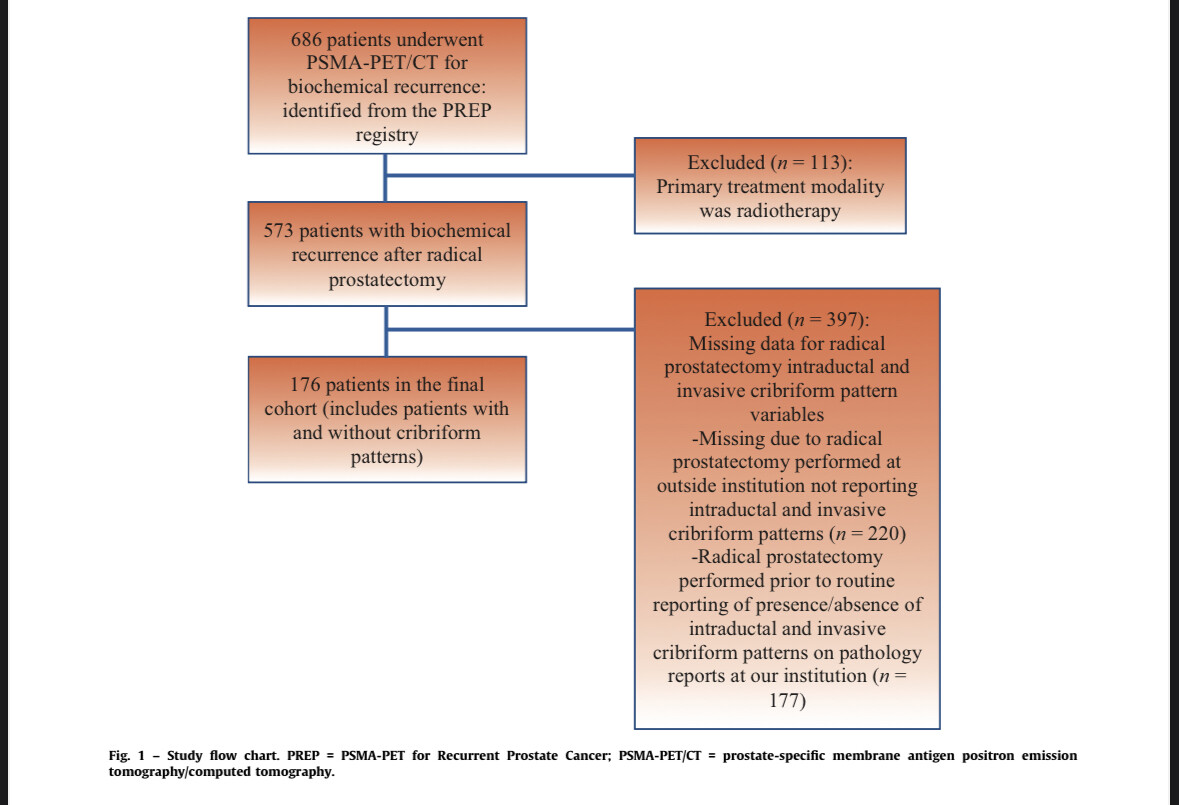Furthermore, among patients with PSMA-PET/CT–detected metastatic disease, the presence of invasive cribriform adenocarcinoma (ICC) and intraductal carcinoma (IDC) on the RP specimen was associated with distinct patterns of metastatic spread, with the presence of ICC and IDC on the RP specimens associated with 3.13- and 2.08- fold increased odds of having lymphatic metastases, as opposed to bone or visceral metastases. Our findings overall suggest that among patients with BCR after RP undergoing PSMA-PET/CT, the ‘‘a priori’’ presence of cribriform pattern on the RP specimen is a risk factor for increased metastases overall, with a predilection for a lymphatic pattern of spread, although causality cannot be inferred due to the cross-sectional nature of this study.

In conclusion, the presence of IDC on RP specimens of patients with BCR following an RP is associated with 2.17-fold increased odds of metastases on PSMA-PET/CT. Among patients with PSMA-PET/CT-detected metastatic disease, cribriform morphology strongly selects for a lymphatic pattern of metastasis. These findings have implications for the design and evaluation of post-RP salvage therapies.
Written by: Rui Bernardino, PhD, Division of Urology, Department of Surgical Oncology, University of Toronto, Princess Margaret Cancer Centre, Toronto, ON, Canada
Read the Abstract


